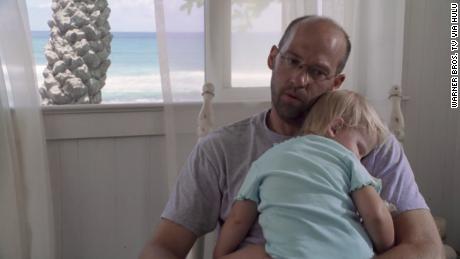1) I was heterosexual.2) "ER" was excellent television. Now, [redacted] years later, I've confirmed both those things are still true by rewatching all 15 seasons of the medical drama.I tore through the first 12 seasons in about four months. It was not for a work-related assignment; I just felt like doing it. I took a long "ER" timeout midway through Season 12 because my mother claimed I was becoming a hypochondriac, and I didn't disagree. Six months later, the entire series made its streaming debut on Hulu, the universe's way of mocking me for spending more than $200 on the digital downloads via Amazon. With its arrival on Hulu, I slowly worked through remaining three seasons, completing my 331-episode rewatch weeks ago. In addition to giving me more credits toward my doctorate in television medicine, completing my self-imposed mission a few months ahead of the 25th anniversary of "ER's" first episode has given me clarity, both as a person who writes a lot about television for a living and someone who loves television.
'ER' is prime example of aging gracefully
Since finishing "ER," I've been pleased to learn I'm not alone in taking on the task of watching the whole series. Far from it, in fact. According to Hulu, almost 100,000 subscribers have binged the entire series since it launched exclusively on the service last year. Nearly two-thirds of them are female and half of them are under the age of 34. According to Hulu, almost 100,000 subscribers have binged the entire series since it launched exclusively on the service last year. A representative for the service also shared this: The most common age of an "ER" binge watcher is 27, "meaning they were only 2 years old when the series premiered in September 1994." A simple explanation for these stats? "ER" aged very well. It's not perfect, of course. The doctors' treatment of transgender patients was often problematic, for example, and some attempts at telling stories about minorities missed the mark.But as a whole, the show evolved with the times. "ER" featured storylines and arcs about addiction, AIDS, post-traumatic stress, sexual abuse, LGBT parental rights, and so much more, in some cases long before those issues were widely showcased on television.Actress Laura Innes, who played Dr. Kerry Weaver, told TVGuide in a 2007 interview that she felt producers and NBC "didn't really get enough credit" for having her character begin dating a woman in Season 7, which aired in 2000-2001. "It was a big deal to have a main character on a mainstream show come out," she said.It's easy to forget there was a time when these were bold moves.
Yes, a TV show can teach you about death in a way that helps you in real life
"ER" had a lot of death, but it was really a show about valuing the life that comes before it.No greater example of this exists than the eight-season arc of Dr. Mark Greene (Anthony Edwards). In his time on the show, the character was put through the ringer — a violent attack, a divorce, a number of devastating patient losses, an awkward facial hair phase. He always came back, though — to save lives, to lead his team at County General Hospital, and to teach others how to lead.He ultimately succumbed to a brain tumor at the end of Season 8 in one of the show's most heart-wrenching episodes.  When that episode aired, I was 14 years old, about the age of Greene's daughter. I remember confronting, in a way that felt extremely personal, the idea of my parents' mortalityI spent about 15 years avoiding that episode, even changing the channel when it aired in repeats on the Pop Network. When I reached that point in my rewatch, it was less than a year after my father had died unexpectedly. Still, I powered forward. Watching it again broke me apart in ways that are hard to describe, but also gave words to my pain in a way I hadn't been able to express at that point and led to an epic, cathartic cry.I found peace in reflection, too. If we must go — and we all do — what better than having a life well-lived? In describing Greene's departure in a 2002 interview with the Albany Times Union, executive producer Jack Orman admitted while the character's final episodes were sad, "there's a life-affirming element to it."He wasn't wrong.
When that episode aired, I was 14 years old, about the age of Greene's daughter. I remember confronting, in a way that felt extremely personal, the idea of my parents' mortalityI spent about 15 years avoiding that episode, even changing the channel when it aired in repeats on the Pop Network. When I reached that point in my rewatch, it was less than a year after my father had died unexpectedly. Still, I powered forward. Watching it again broke me apart in ways that are hard to describe, but also gave words to my pain in a way I hadn't been able to express at that point and led to an epic, cathartic cry.I found peace in reflection, too. If we must go — and we all do — what better than having a life well-lived? In describing Greene's departure in a 2002 interview with the Albany Times Union, executive producer Jack Orman admitted while the character's final episodes were sad, "there's a life-affirming element to it."He wasn't wrong.
Reinvention is hard
Slumps are an accepted reality of any long-running TV show, regardless of what producers claim, and &quoRead More – Source
[contf] [contfnew] 
CNN
[contfnewc] [contfnewc]






